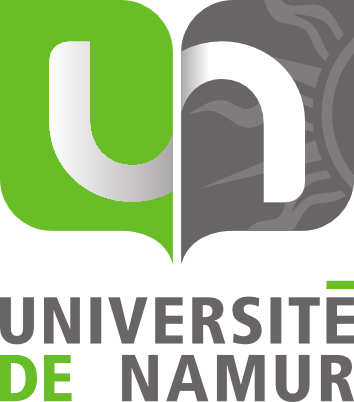événement
Défense de thèse de doctorat en Sciences chimiques - Léa CHARTIER
Site-selective functionalisation of antibody Glycans for biomedical applications
Catégorie :
défense de thèse
Date : 01/07/2022 09:00 - 01/07/2022 12:00
Lieu : CH11
Orateur(s) : Léa CHARTIER
Organisateur(s) : Stéphane VINCENT
Date : 01/07/2022 09:00 - 01/07/2022 12:00
Lieu : CH11
Orateur(s) : Léa CHARTIER
Organisateur(s) : Stéphane VINCENT
Jury
- Prof. Carine MICHIELS (département de biologie, UNamur), présidente
- Prof. Stéphane VINCENT (département de chimie, UNamur), promoteur et secrétaire
- Dr Riccardo MAREGA (CER Groupe), co-promoteur
- Prof. Xavier DE BOLLE (département de biologie, UNamur)
- Dr Yann GUÉRARDEL (unité de glycobiologie structurale et fonctionnelle, Université de Lille/CNRS)
- Prof. Patrice SOUMILLION (Louvain Institute of Biomolecular Science and Technology, UCLouvain)
Résumé
Antibodies
(Abs) can be usually functionalised with molecular probes, drugs or
fluorophores by stochastic conjugation protocols involving cysteine or
lysine residues naturally present on the polypepetide framework. These
modifications give novel properties such as functions or reactivity
useful for diagnostic or therapeutic purposes. Nevertheless, these
stochastic protocols lead to antibody batches that are heterogeneous in
terms of number and spacial distribution of the payloads. Moreover, the
resulting Abs are known to have lower activity compare to their
unmodified counterparts. Indeed, the stochastic functionalisation can
occur on the variable regions, which are located in the functional site
responsible for the antigen recognition. This is why it is interesting
to use site-selective antibody modifications, which are known to retain
high structural homogeneity, biological activity, and a control of the
degree of labelling. Abs functionalised by these approaches are ideal
tools for diagnostic and therapeutic uses. Among the most widely used
sites for site-selective antibody modification, the N-glycan moiety on
the Fc region is attracting increasing interest.
In this contest, this thesis proposes a new protocol for the modification of antibody N-glycans, which aims to be as universal as possible (e.g applicable to a broad range of mammalian Abs). To that end, the glycosylation profile of many Abs from different species was analysed using complementary techniques including HRMS. Both F(6)M3 and F(6)A2 common glycoforms were found aboundant and selected for further functionalisation. The F(6)M3 glycan was obtained by the action of several hydrolases and the reaction was optimized to a yield of over 80 %. The modified N-acetylglucosamine (GlcNAc) with an azide group (GlcNAz) was added to both glycoforms thanks to glycosyltransferases MGAT1 and MGAT3, respectively. The reaction was particularly optimized on F(6)A2 to obtained the F(6)A2BGlcNAz bisecting glycan with 82 % yield. Methods were developed to functionalise and purify this Ab, and its activity was quantified through the determination of the ImmunoReactive Fraction (IRF). These values were compared with Abs modified by commercial kits allowing site-selective N-glycan biotinylation and with Abs with a payload (juorophore, biotin) added in a stochastic manner. The results of these experiments show that the proposed glycan modification induces IRF higher than the ones of stochastically modified Abs, and comparable to that of the unmodified Abs. Furthermore, the procedure has a yield and an easiness of implementation comparable to the procedure required by the commercial kits. These results are very encouraging for future development of this technology and the related diagnostic and therapeutic applications.
In this contest, this thesis proposes a new protocol for the modification of antibody N-glycans, which aims to be as universal as possible (e.g applicable to a broad range of mammalian Abs). To that end, the glycosylation profile of many Abs from different species was analysed using complementary techniques including HRMS. Both F(6)M3 and F(6)A2 common glycoforms were found aboundant and selected for further functionalisation. The F(6)M3 glycan was obtained by the action of several hydrolases and the reaction was optimized to a yield of over 80 %. The modified N-acetylglucosamine (GlcNAc) with an azide group (GlcNAz) was added to both glycoforms thanks to glycosyltransferases MGAT1 and MGAT3, respectively. The reaction was particularly optimized on F(6)A2 to obtained the F(6)A2BGlcNAz bisecting glycan with 82 % yield. Methods were developed to functionalise and purify this Ab, and its activity was quantified through the determination of the ImmunoReactive Fraction (IRF). These values were compared with Abs modified by commercial kits allowing site-selective N-glycan biotinylation and with Abs with a payload (juorophore, biotin) added in a stochastic manner. The results of these experiments show that the proposed glycan modification induces IRF higher than the ones of stochastically modified Abs, and comparable to that of the unmodified Abs. Furthermore, the procedure has a yield and an easiness of implementation comparable to the procedure required by the commercial kits. These results are very encouraging for future development of this technology and the related diagnostic and therapeutic applications.
Lien
Télecharger :
vCal
